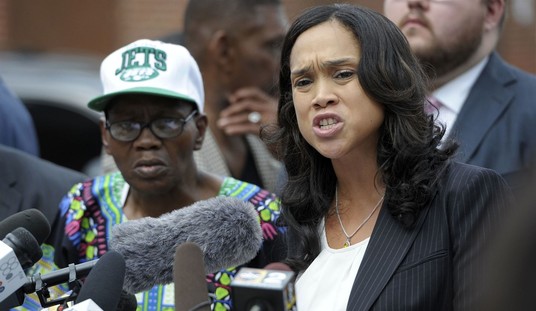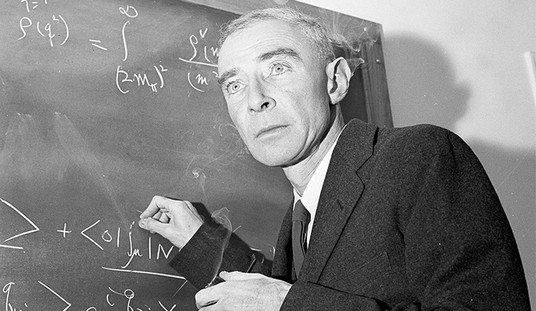Yes, I’m being facetious with that headline. After watching the media demonstrate their lack of comprehension of the Catholic Church yet again this week, the LifeNews update on Pope Francis might still come as a shock to some journalists:
A day after an interview the mainstream media used to claim Pope Francis is backing down on the Catholic Church’s pro-life teachings, the Pope condemned abortion in strong terms, saying unborn babies are “unjustly condemned” when killed in abortions.
In the text of a message the Pope delivered to a group of Catholic doctors this morning, as distributed by the Vatican today, Pope Francis soundly condemned abortion.
“Every unborn child, though unjustly condemned to be aborted, has the face of the Lord, who even before his birth, and then as soon as he was born, experienced the rejection of the world,” he said.
Pope Francis condemned the “throwaway culture” abortion promotes, saying, “Our response to this mentality is a ‘yes’ to life, decisive and without hesitation. ‘The first right of the human person is his life. He has other goods and some are precious, but this one is fundamental –- the condition for all the others’”.
None of this is new. And in fact, none of what Pope Francis said in his lengthy interview this week is new, either, not for anyone who reads the catechism of the Catholic Church and understands the pontiff’s emphasis on evangelization. Unfortunately, that leaves out a vast majority of the secular media, which led me to tweet this out yesterday:
I for one cannot wait to see how the media will mangle Pope Francis' "don't be Pharisees" message into "if it feels good, do it."
— Ed Morrissey (@EdMorrissey) September 19, 2013
By that time, many already had — and that created a widespread impression that Pope Francis said that the Church should back off its opposition to abortion, gay marriage, and contraception. For instance, this was ABC News’ headline for the story: “Pope Warns Church on Divisive Rules on Abortion, Gays.”
However, that wasn’t what the Pope said, let alone meant. The pontiff was warning about a divisive approach to everyone, and a lack of focus on the core message of God’s love and salvation through Jesus Christ. Francis gave an analogy of the Church as a “field hospital,” which needs to triage the wounds before true healing can take place. That means first proclaiming Jesus Christ as God’s salvation and victory over all sin based on sheer love the Creator has for His creation.
Here’s what Francis actually said:
“The church sometimes has locked itself up in small things, in small-minded rules. The most important thing is the first proclamation: Jesus Christ has saved you. And the ministers of the church must be ministers of mercy above all. The confessor, for example, is always in danger of being either too much of a rigorist or too lax. Neither is merciful, because neither of them really takes responsibility for the person. The rigorist washes his hands so that he leaves it to the commandment. The loose minister washes his hands by simply saying, ‘This is not a sin’ or something like that. In pastoral ministry we must accompany people, and we must heal their wounds.
“How are we treating the people of God? I dream of a church that is a mother and shepherdess. The church’s ministers must be merciful, take responsibility for the people and accompany them like the good Samaritan, who washes, cleans and raises up his neighbor. This is pure Gospel. God is greater than sin. The structural and organizational reforms are secondary—that is, they come afterward. The first reform must be the attitude. The ministers of the Gospel must be people who can warm the hearts of the people, who walk through the dark night with them, who know how to dialogue and to descend themselves into their people’s night, into the darkness, but without getting lost. The people of God want pastors, not clergy acting like bureaucrats or government officials. The bishops, particularly, must be able to support the movements of God among their people with patience, so that no one is left behind. But they must also be able to accompany the flock that has a flair for finding new paths.
“Instead of being just a church that welcomes and receives by keeping the doors open, let us try also to be a church that finds new roads, that is able to step outside itself and go to those who do not attend Mass, to those who have quit or are indifferent. The ones who quit sometimes do it for reasons that, if properly understood and assessed, can lead to a return. But that takes audacity and courage.”
The interviewer then asked specifically about people who have divorced and remarried, and same-sex couples, and asked this specific question:
What kind of pastoral work can we do in these cases? What kinds of tools can we use?
“We need to proclaim the Gospel on every street corner,” the pope says, “preaching the good news of the kingdom and healing, even with our preaching, every kind of disease and wound. In Buenos Aires I used to receive letters from homosexual persons who are ‘socially wounded’ because they tell me that they feel like the church has always condemned them. But the church does not want to do this. During the return flight from Rio de Janeiro I said that if a homosexual person is of good will and is in search of God, I am no one to judge. By saying this, I said what the catechism says. Religion has the right to express its opinion in the service of the people, but God in creation has set us free: it is not possible to interfere spiritually in the life of a person.
“A person once asked me, in a provocative manner, if I approved of homosexuality. I replied with another question: ‘Tell me: when God looks at a gay person, does he endorse the existence of this person with love, or reject and condemn this person?’ We must always consider the person. Here we enter into the mystery of the human being. In life, God accompanies persons, and we must accompany them, starting from their situation. It is necessary to accompany them with mercy. When that happens, the Holy Spirit inspires the priest to say the right thing.
“This is also the great benefit of confession as a sacrament: evaluating case by case and discerning what is the best thing to do for a person who seeks God and grace. The confessional is not a torture chamber, but the place in which the Lord’s mercy motivates us to do better. I also consider the situation of a woman with a failed marriage in her past and who also had an abortion. Then this woman remarries, and she is now happy and has five children. That abortion in her past weighs heavily on her conscience and she sincerely regrets it. She would like to move forward in her Christian life. What is the confessor to do?
“The dogmatic and moral teachings of the church are not all equivalent. The church’s pastoral ministry cannot be obsessed with the transmission of a disjointed multitude of doctrines to be imposed insistently. Proclamation in a missionary style focuses on the essentials, on the necessary things: this is also what fascinates and attracts more, what makes the heart burn, as it did for the disciples at Emmaus. We have to find a new balance; otherwise even the moral edifice of the church is likely to fall like a house of cards, losing the freshness and fragrance of the Gospel. The proposal of the Gospel must be more simple, profound, radiant. It is from this proposition that the moral consequences then flow.
Pope Francis then finishes by explaining what evangelical Catholicism looks like in practice — from the pulpit:
“I say this also thinking about the preaching and content of our preaching. A beautiful homily, a genuine sermon must begin with the first proclamation, with the proclamation of salvation. There is nothing more solid, deep and sure than this proclamation. Then you have to do catechesis. Then you can draw even a moral consequence. But the proclamation of the saving love of God comes before moral and religious imperatives. Today sometimes it seems that the opposite order is prevailing. The homily is the touchstone to measure the pastor’s proximity and ability to meet his people, because those who preach must recognize the heart of their community and must be able to see where the desire for God is lively and ardent. The message of the Gospel, therefore, is not to be reduced to some aspects that, although relevant, on their own do not show the heart of the message of Jesus Christ.”
As the Pope states, it’s not a matter of one thing or another. It’s a matter of priority — a triage of the soul. We must start first and always with the Good News: God loves you, and sent His only son Jesus Christ who triumphed over man’s sinful nature so that all could be saved. Only then will proper formation (catechesis) occur, and only after that can we express the moral consequences of remaining unrepentant in sin. If we don’t start with the message of salvation first, though, we risk reducing the Church “to a nest protecting our mediocrity,” as the Pope says in another part of the interview.
The only way anyone can miss the message of evangelization and salvation is to pull isolated sentences out of that response without the overall context. And that is exactly what happened, as it happens so often in mainstream media reporting on Pope Francis, whose determination to engage in pastoral outreach leaves many opportunities for the media to get it wrong.
George Weigel, who literally wrote the book on Evangelical Catholicism (and whom I interviewed in Rome this year), didn’t get fooled by the spin. He points out that Francis himself reiterated that the Catholic Church teachings on the modern ills of society are clear, but can only be healed by bringing people face to face with Christ first, rather than “rules” — and that this approach has been clearly stated since Vatican II:
And how are the wounds of late-modern and postmodern humanity to be healed? Through an encounter with Jesus Christ, the Son of the living God. “The most important thing, “ Francis insisted in his interview, “is the first proclamation: Jesus Christ has saved you.” The Church of the 21st century must offer Jesus Christ as the answer to the question that is every human life (as John Paul II liked to put it). The moral law is important, and there should be no doubt that Francis believes and professes all that the Catholic Church believes and professes to be true about the moral life, the life that leads to happiness and beatitude. But he also understands that men and women are far more likely to embrace those moral truths — about the inalienable right to life from conception until natural death; about human sexuality and how it should be lived — when they have first embraced Jesus Christ as Lord. That, it seems to me, is what the pope was saying when he told Antonio Spadaro that “proclamation in a missionary style focuses on the essentials, on the necessary things.” These are what make “the heart burn: as it did for the disciples at Emmaus. . . . The proposal of the Gospel must be more simple, profound, radiant. It is from this proposition that the moral consequences then flow.”
Francis underscores that “the teaching of the Church is clear” on issues like abortion, euthanasia, the nature of marriage, and chastity and that he is “a son of the Church” who accepts those teachings as true. But he also knows that “when we speak about these issues, we have to talk about them in a context.” That “context” is Jesus Christ and his revelation of the truth about the human person. For as the Second Vatican Council taught inGaudium et Spes, its Pastoral Constitution on the Church in the Modern World, “It is only in the mystery of the Word made flesh that the mystery of man truly comes clear. For Adam, the first man, was the type of him who was to come. Christ the Lord, Christ the new Adam, in the very revelation of the mystery of the Father and of his love, fully reveals man to himself and brings to light his most high calling.” …
Francis’s radical Christocentricity — his insistence that everything in the Church begins with Jesus Christ and must lead men and women to Jesus Christ — also sheds light on his statement that there is a hierarchy of truths in Catholicism or, as he put it, that “the dogmatic and moral teachings of the Church are not all equivalent.” That does not mean, of course, that some of those those teachings are not really, well, true; but it does mean that some truths help us make sense of other truths. The Second Vatican Council reclaimed this notion of a “hierarchy of truths” in Unitatis Redintegratio, its Decree on Ecumenism, and it’s an important idea, the pope understands, for the Church’s evangelical mission.
If you don’t believe in Jesus Christ as Lord — if you’ve never heard the Gospel — then you aren’t going to be very interested in what the Catholic Church has to say in Jesus’s name about what makes for human happiness and what makes for decadence and unhappiness; indeed, you’re quite likely to be hostile to what the Church says about how we ought to live. By redirecting the Church’s attention and pastoral action to the Church’s most basic responsibility — the proclamation of the Gospel and the invitation to friendship with Jesus Christ — Pope Francis is underscoring that a very badly disoriented 21st century will be more likely to pay attention to evangelists than to scolds: “We need to proclaim the Gospel on every street corner, preaching the good news of the kingdom and healing, even with our preaching, every kind of disease and wound. . . . The proclamation of the saving love of God comes before moral and religious imperatives.” The Church says “yes” before the Church says “no,” and there isn’t any “no” the Church pronounces that isn’t ultimately a reflection of the Church’s “yes” to Jesus Christ, to the Gospel, and to what Christ and the Gospel affirm about human dignity.
Pope Francis is the most pastoral-centered pontiff of our lifetimes, aiming at a real evangelization that has to lead with love and Jesus Christ, not with rules and rejection. That doesn’t mean rules have changed or have lost importance; it’s just that Francis wants them in their proper role of formation after bringing people into the fold through the power of God’s love, after we tend to the “wounds” of sin. If one reads the whole interview, Pope Francis’ meaning is unmistakable.
Cardinal Timothy Dolan, who has certainly been on the front lines of fights against abortion, marriage, and contraception as president of the USCCB, explains this to viewers of CBS This Morning. Noting that CBS calls him more often whenever Francis gives an interview, Dolan challenges CBS to think that maybe Francis wasn’t just talking about Catholics when he says we need to rethink our priorities:
Update: Thomas McDonald pronounces himself fortunate for having read the interview before seeing any of the media interpretation of it. After reviewing the latter, he argues that the media is making another false narrative about the church, too:
In a sense, we have the split sometimes understood by the image of “John versus Peter”: John the mystic, and Peter the man of action; one esoteric, representing the head (John), the other exoteric, representing the heart (Peter). Together, they built up the Church as the most important of the apostles.
It’s overly simplistic to call Benedict the head and Francis the heart, since each had qualities of the other, as did John and Paul. (Indeed, in the interview Francis makes a claim to a mystical sensibility in his understanding of the Ignatian exercises, while Benedict rejected the idea that he was a mystic.) However, it’s a useful analogy when trying to understand the pastoral emphasis of each man.
Reading Francis as evidence of some new day dawning in the Church is misguided. There is not a hairsbreadth of difference between the theology of Francis and Benedict.
This is exactly what the affirmative orthodoxy of Benedict is all about: the “yes” of Christ. The Church is a “yes” to life, and life in abundance, while the world is the “no.” All of his writing and preaching centered on this idea of the yes of faith in the risen Christ.
What we have is a shift in perception, which is a potent thing in the age of mass media. Francis was a new beginning. The die was cast with Benedict, who had gotten an undeserved reputation as a grim inquisitioner. Francis was a new page, totally blank as far as the world, and indeed much of the Church, is concerned.
That he articulates the message of the Church of love, concern, and hope–the same message of Benedict, John Paul II, Paul VI, and every other pope back to Peter–with good humor, clarity, and simplicity is a blessing.







Join the conversation as a VIP Member